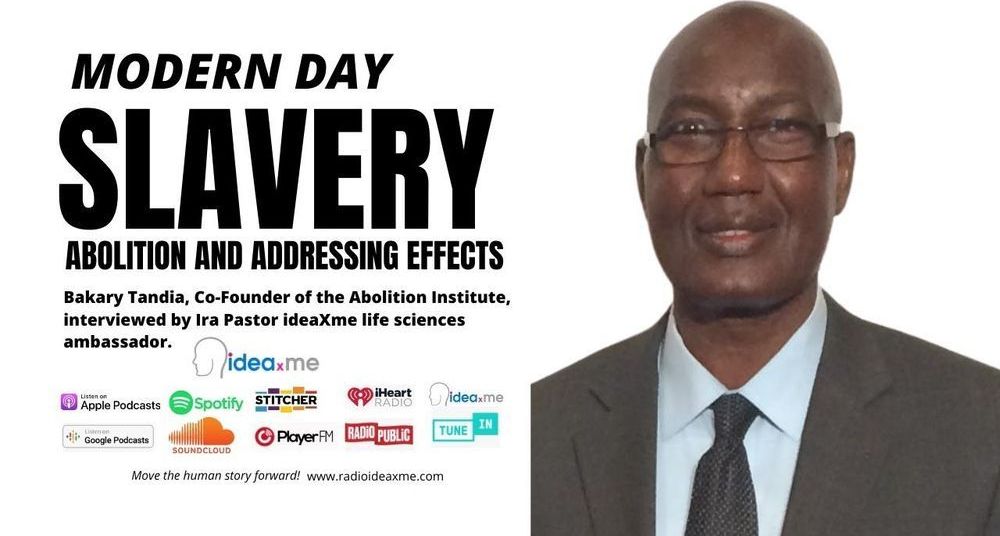In 2020, slavery is not gone from this planet…
Ira Pastor, ideaXme life sciences ambassador, interviews Bakary Tandia, Co-Founder of the Abolition Institute, a group working to promote awareness of, and dedicated to ending, the practice of slavery in the west African country of Mauritania.
Slavery and enslavement are defined of the state and condition of being a slave, where the individual cannot quit their service to another person and is treated like property.
In chattel slavery, the enslaved person is legally rendered the personal property of the slave owner. In economics, the term de facto slavery describes the conditions of unfree labor and forced labor that most slaves endure. In the course of human history, while slavery was often a feature of civilization and legal in most societies, it is now outlawed in all countries of the world.
In 2019, approximately 40 million people, of whom 26 percent were children, were enslaved throughout the world despite it being illegal. In the modern world, more than 50 percent of enslaved people provide forced labor, usually in the factories and sweatshops of the private sector of a country’s economy. In the industrialized countries, human trafficking is the modern variety of slavery; in the unindustrialized countries, enslavement by debt bondage is a common form of enslaving a person, such as captive domestic servants, forced marriage, and child soldiers.
Modern day slavery is a multibillion-dollar industry with just the forced labor aspect generating US $150 billion each year.
Bakary Tandia:
Bakary Tandia is a well-respected and dynamic human rights advocate with an extensive background in promoting human rights and social justice causes and Co-Founder of the Abolition Institute, a group working to promote awareness of, and dedicated to ending, the practice of slavery in the west African country of Mauritania, where it is estimated that around 90,000 people (over 2% of Mauritania’s population) are chattel slaves.
